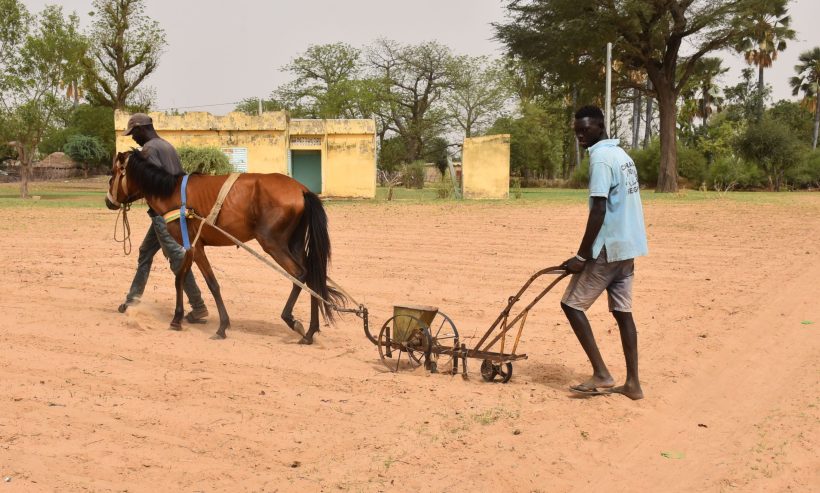
African Women in Agricultural Research and Development (AWARD), through its Fellowship initiatives, is building a pool of African women to be effective and influential agricultural research leaders capable of generating innovations that respond to smallholders’ needs. For the past 14 years, AWARD has been investing in plugging the pipeline of women in agricultural research and leadership by equipping Africa’s leading women agricultural scientists with the skills and confidence to lead.
Although women comprise 40 percent of the agricultural workforce in Africa, the share of professional women agricultural researchers is considerably lower in francophone countries. To increase agricultural output and ensure smallholders are adequately prepared to withstand the shocks of the current climate, there is an urgent need for greater representation of women in agriculture.
Through the One Planet Fellowship, together with our partners, we are bolstering our interventions in francophone Africa, enhancing the capacity of scientists in this region, and fostering intracontinental collaborations.
Laura Estelle Loko, one of the 56 female scientists, offered the competitive One Planet Fellowship working to identify safe options for mitigating postharvest loss amongst yam smallholder farmers in Benin. Specializing in genetics and entomology, Laura is developing sustainable pest control methods to preserve the conservation of Benin’s plant genetic resources.
The 38-year-old Associate Professor of Zoology and genetics at the Higher National School of Biosciences and Applied Biotechnologies (ENSBBA) notes that many crops are neglected despite offering greater resilience to climate change and better food security. She adds that during her thesis study, she observed that women farmers were experiencing significant postharvest losses due to insect pests in stored yam pods.
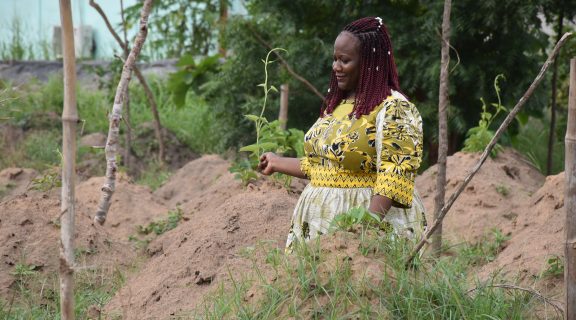
“Postharvest management in Benin is a current problem that needs special attention. Yet very little research has been done on it. This inspired my passion for finding human and environmentally friendly solutions,” she states.
Laura is determined to help improve food security and raise farmers’ income in Benin by developing innovative crop insect pest management solutions.
In Senegal, a 2020 One Planet Laureate Candidate, Marie-Therese Daba Sene, is working to bridge gender inequalities in the country’s agroecology sector. Her research explores how the innovation of agroecology can combat the effects of climate change and create opportunities for women smallholders to better contribute to the sustainability of agriculture in Senegal.
Despite her initial beliefs that agroecology is a discipline reserved for scientists only, Marie is passionate about women farmers in agroecology. Marie-Therese is a social scientist. Growing up in Mariegal, Senegal, she observed that many development issues hindered women’s progress in farming.
“Now, I like documenting these issues and offering sustainable solutions. We must get it right. Otherwise, our efforts will be in vain,” says Marie-Therese.
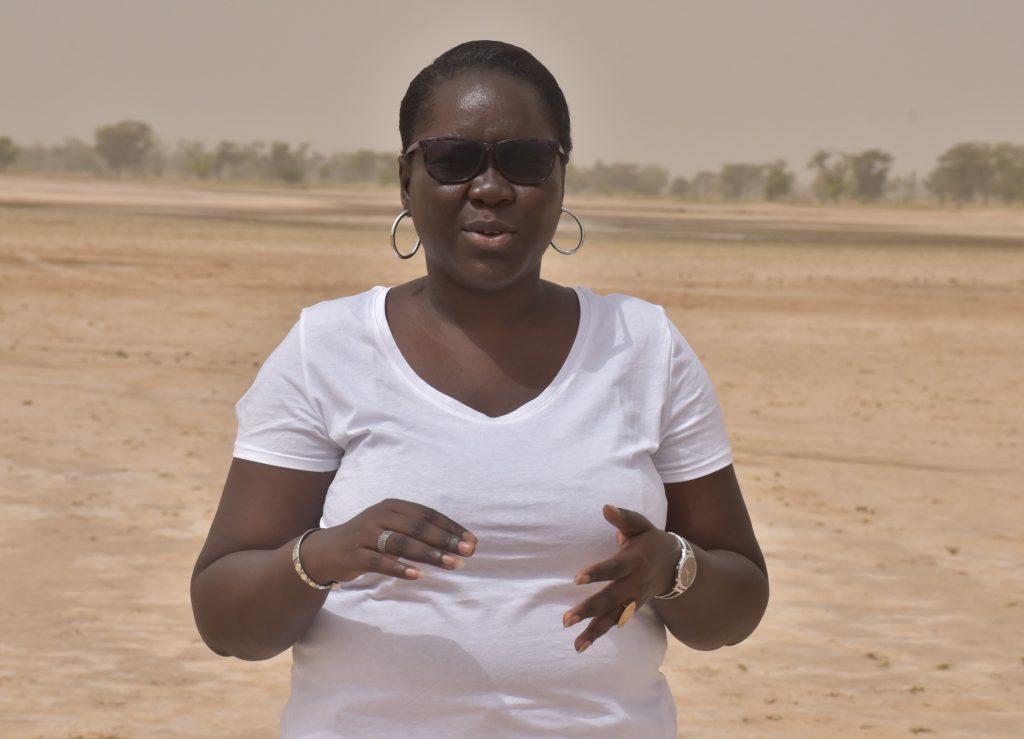
Marie-Therese envisions working with Senegal’s national policymaking bodies to promote more inclusive development strategies in Senegal’s agricultural sector. She states that the One Planet Fellowship is an excellent opportunity to strengthen her leadership ability and broaden her knowledge in agriculture and climate change, mainly because agroecology is vast and multidisciplinary.
Marie-Therese is currently enrolled for a PhD specializing in gender issues related to agroecology at Gaston Berger University.
Still in Senegal, Mame Sokhna Sarr, the head of research in plant ecophysiology at the National Centre of Forest Research of the Senegalese Institute of Agricultural Research (CNRF/ISRA), Dakar, is leveraging the One Planet Fellowship to build her personal and scientific capabilities and seek collaborative features to promote inclusive farming methods and increase the resilience of rural communities.
For Mame, building smallholders’ resilience to climate change is crucial to achieving food security and securing a better future for Senegal and the continent. Her research focuses on the ecophysiology of woody trees for multiple uses.
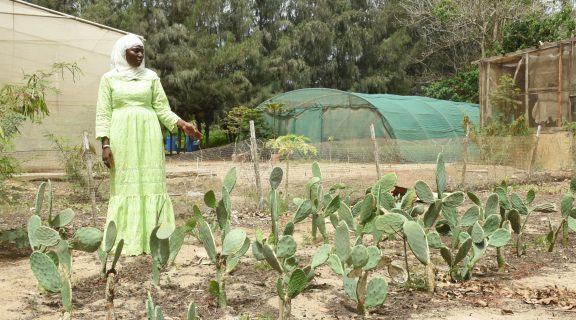
Mame has always loved nature. Unsurprisingly, when it came to her education, she chose mathematics and natural sciences. She recalls that her first research was on the ecophysiological characterization of Acacia Senegal (Senegalia Senegal) to determine efficient water use and gum arabic productivity.
“Adaptation and yield components of gum are vital for improving the income of local populations and mitigating the effects of climate change in arid and semi-arid environments,” she stresses.
Mame also wants to research cacti or prickly pear. She says that the species has the potential for restoration of degraded land and, above all, to improve the resilience of local communities. She believes that to improve Africa’s agriculture and build a better future for smallholders, Africa must fully optimize its natural resources, especially in arid and semi-arid areas.
Mame’s sentiments are echoed by Nogaye Niang, who is working on a project to promote mycorrhization, and biological nitrogen fixation in groundnut (Arachis hypogaea L.), emphasizing the need for evidence-based research. Nogaye believes that promoting healthy ecosystems and sustainable land management holds the potential to strengthen smallholders’ resilience.
“Today, I am driven by the need to help mitigate the effects of climate change in an environment where production is threatened by irregular rainfall, water scarcity, drought, soil impoverishment, and degradation linked to the mass use of fertilizers,” she states. That is why her research aims to improve yields while minimizing environmental damage. She is exploring using plants and beneficial soil microorganisms to reduce chemical inputs and pesticides and raise production.
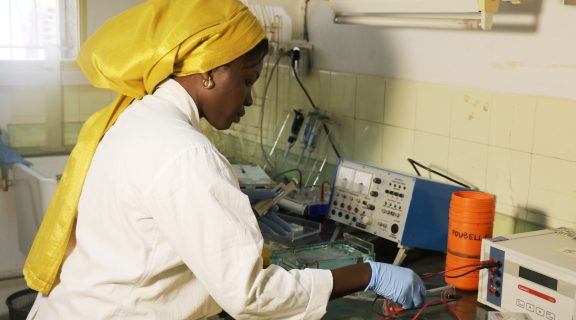
Nogaye is working with farmers in the Thiès region and Mbawane, a village district about 55 kilometers from Dakar, to advance the locally adapted groundnut varieties that can fix nitrogen under dry conditions to generate competitive crop yields.
It is no secret that men and women must be on equal footing to transform Africa’s food system. This is true for farmers and professional scientists and research institutions devoted to addressing challenges and providing solutions to farmers. We must do more to include women in decision-making processes. Only then can the shift in transforming the future of Africa’s agriculture move further.
